“Diversity is our pledge to reflect as a company what we should protect and defend as a society: respect for every human being.” Codelco’s commitment to diversity and inclusion now lies at the heart of Chile’s state-owned copper miner, beginning in 2015 with two significant actions. Codelco’s Corporate Diversity & Inclusion Director, Irene Schlechter Kutscher, explains the company first published its Gender Diversity Corporate Policy, a directive aimed at promoting work/life balance and improving gender balance. Secondly, it began the implementation of the Chilean Norm 3262, which is the first ISO standard for gender equality at work in the world.
Codelco’s strategy is generating a cultural change across all its eight divisions and two work centres. The company now has a Corporate Diversity and Inclusion Directorate, Diversity and Inclusion Leaders at each operational centre, also creating Gender Round Tables with the trade unions. With over 17,000 employees (including 1,782 women) and 47,000 contractors, Codelco is influential in the promotion of gender equality across Chile and contributes to the UN’s fifth sustainability goal: “To achieve gender equality and empower all women and girls”.
For Schlechter Kutscher’s team the journey towards gender balance is an ongoing challenge. “Although we have increased the participation of our professional female workers by four times in the past 20 years, at both operational and technical levels, the ratio remains practically the same,” she says. “We have a big challenge in increasing the number of female executives because there is still scarce talent in mining at that level. We will be focusing on preparing female management leaders and forming the capacities of young women in our country to join and to keep strengthening all segments.” Mining is the economic activity with the second lowest female participation in Chile at 8.4%. However, Codelco is performing better than the national average at 9.9%. Schlechter Kutscher is keen for Codelco to push further, fly the flag for Chile, and collaborate with both national and international companies in the country to promote the insertion of women into the industry.
Schlechter Kutscher, who previously worked in agriculture, pharma and tech startups, notes that historically, “women had access to certain professional fields and were prohibited to develop a career freely” without the weight of traditions. Today, even though many are working in diverse industries, hurdles remain. “As a society, we are still struggling to eliminate stereotypes, and untying education is a great solution for organisations to have a merit development-based culture, without gender acting as a constraint on equal opportunities,” she says. Allied to this pressure, she cites the fact that though at Codelco there is a willingness from male management leaders to encourage, mentor and accelerate women’s careers to c-level, there is still a lack of women at the top executive level. “We need to work on our culture biases,” she recommends. “Professional women have held secondary positions for decades, probably because maternity has been an aspect which has been perceived as a limiter of career development, favouring the absence of references for new generations.”
Respect is key, believes Schlechter Kutscher. “It needs to always be the core value of our culture. We all need to be treated with the same respect regardless of our differences. Everybody must feel valued to have a strong engagement to this organisation, while not discriminated in any way. And our leaders know they have a big role to play on this matter.”
Codelco manages 50% of the mining workforce across Chile. “We are the biggest mining company in terms of endowment here,” confirms Schlechter Kutscher. “That is a challenge in itself because any changes you want to implement require communication with more than 200 leaders at the executive levels; with middle management we’re talking about nearly 2,000 people.” She highlights that the company is going through a period of huge change, not only in its culture but in terms of operations and digital transformation during a $4bn investment phase which is the biggest in its history.
To further its goals around diversity and inclusion Codelco has strong collaboration and round tables with the Chilean Ministry of Women and Gender Equality, Ministry of Mining, Business Sweden and Women in Mining; it also works closely forging links with universities across Chile. “We have bi-monthly meetings with the Federation of Workers in Mining (Chile’s biggest union),” adds Schlechter Kutscher.
Beyond Codelco, she can see a growing trend for mining companies to bring in female employees and empower them to build up their technical abilities. “We were among the pioneers,” she says proudly. “That’s why we cannot be left behind; we need to keep being innovative and the first to implement new practices in terms of upgrading core responsibilities, our infrastructure, work centres and the role modelling of our leaders. “Ultimately, we shouldn’t need to have a department for diversity, the goal is for it to be naturally occurring.” We must bring the best talent in the market to ensure the success of our business today and in the long-term – regardless of colour, origin, gender or any other difference. Talent is not housed in a genre. Every person that works at Codelco is here for their merits, not to make up the numbers.”
Codelco has been strengthening and accelerating female career paths while identifying high potential in the lowest levels of its organisation and beyond. “We have a great programme focused on girls and young women in both professional and technical levels; we’re preparing them for opportunities in the mining industry when they finish their studies,” says Schlechter Kutscher. “We’re also talking to young people at technical schools about gender balance and diversity in our industry so we can encourage more talents to enter it, because the recent analysis from the likes of EY shows it’s become increasingly difficult to attract younger generations into the mining professions; we must work to reverse that.”
Codelco’s diversity and inclusion department was originally created with a gender focused directive but was expanded to include support for different generations, backgrounds and cultures. “We are a reference point for the industry in Chile,” says Schlechter Kutscher who believes promoting these values is not only good for business, but critical for its sustainability. She believes that as a state-owned company “Codelco has an ethical commitment to our society to do the right thing, be aligned with human rights and protect the working rights of every person” and that what Codelco is implementing is contributing to the transformation of Chilean culture. That pledge to transform has seen Codelco aim for a new target of 14% (to further increase the number of women in decision-making roles (today it’s 12.7%) while setting for a ‘women in the workforce’ target of 11% by 2025. “We need to keep listening to both women and men, from all levels and generations, because this matter involves everybody” she says. “Their input is essential to position the biggest copper company in the world as an example of how diversity fosters a high performance organisation.”
Fonte: Mining Global





